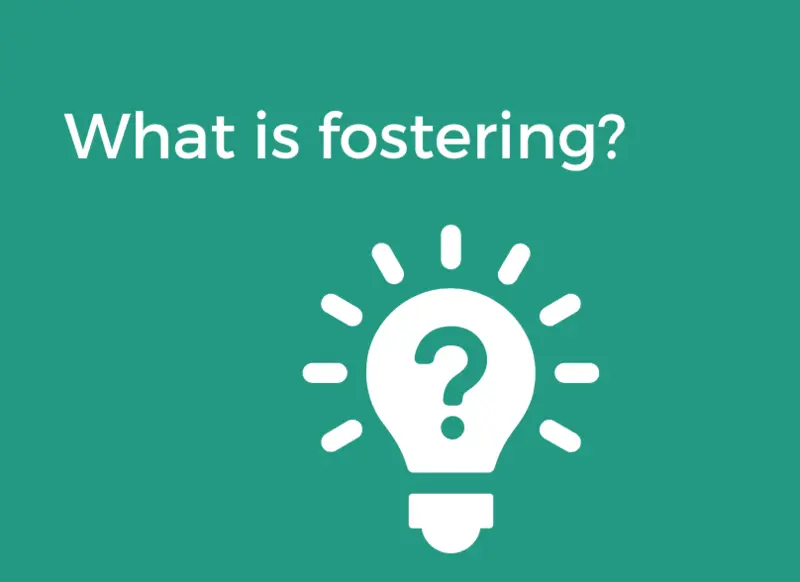What is fostering?
Rewarding, challenging, fun, fulfilling, eye-opening, satisfying, life-changing, and amazing! Find out more about fostering with Blue Sky.


What is fostering?
It’s about giving love back to people that have not had a great start in life… making them grow into the best person they can be.
Kevin, Blue Sky foster carer
What is foster care?
Foster care is a safeguarding system to provide safe, stable family homes for vulnerable young people.
When young people under 18 can no longer live with their birth parents for various reasons, they are placed within the foster care system, which provides temporary to long-term care in a family environment under the supervision of dedicated foster carers.
Young people come into care through their local authority and are placed with either the local authorities foster carers or a dedicated fostering agency, such as Blue Sky Fostering.
Even though local authorities have their team of foster carers, they rely on independent agencies to offer additional support, not only to the foster carers but with placements where a young person may have additional needs, or when a sibling group needs to be kept together.
As an Ofsted ‘Outstanding’ foster agency, we take great pride in recruiting and training high-quality foster carers. We carefully match our carers with children and young people to achieve the best outcomes for every placement. The best outcomes for those in our care, and for our foster families.
What is a foster carer?
A foster carer is a self-employed carer who looks after young people under 18 whilst they can no longer live with their birth parents. Foster carers take the roles and responsibilities of a parent to provide the young person with a safe, family home with care, support and compassion.
They must be willing to open their home to vulnerable young people and provide them with the best care to grow and thrive. Foster carers must be responsible for the young person’s needs and welfare, providing a home, clothing, education, hobbies, and healthcare and giving love, understanding, support, and guidance.
Our foster carers don’t work alone. They are part of a team of professionals involved in the welfare of the young person and are given training, fully comprehensive support and guidance.
Who can foster?
With no previous experience or qualifications required, almost anyone can train to become a foster carer. Whatever your background, faith, status, education level, relationship status or personal situation, we’ll be delighted to chat with you about becoming a foster carer. Our advice will always be professional, considered and realistic.
Our training will always be relevant, engaging, up-to-date and, where possible, delivered at a venue local to you. In addition, you will receive comprehensive support day and night throughout the year to enable you to provide the best care.
Who can become a foster carer?
We are always looking for foster carers from different backgrounds; couples – whether married or living together – with or without children, single people, same-sex couples and divorced people. We prefer to place young people with foster carers who reflect their background, so we need carers from all cultures and religions.
Your skills
Your skills and life experience will be invaluable resources during your foster-caring career. Sometimes, you may not realise you have the qualities needed to foster, but you will be surprised how everyday life has equipped you with transferable skills. If you:
-
Are patient
-
Have a sense of humour
-
Are optimistic and enthusiastic
-
Have a flexible approach
-
Have a genuine wish to make a positive difference in a young person’s life.
What you need
-
A spare bedroom
-
The capacity to include your foster child as part of your family
-
To be prepared to care for young people of all ages.
Please, browse through our website. It has masses of information about your career in fostering!
We’d love to chat with you!
On this page
Fostering statistics in England...
*Correct as of 31st March 2022

In England, there are 43,905 foster families.

57,540 children were living with foster families.

70% of the 82,170 children in care were looked after away from home.

Common questions asked
Whilst there is a minimum age of 21, and no upper age limit for foster carers, fostering is really about age. Fostering is about offering a vulnerable child or young person a secure and stable home. Fostering is about respecting young people, offering them sound advice, guidance and boundaries and enabling them to be themselves, achieve their goals and enjoy their lives. We'd love to hear from you if you meet these criteria.
Of all the questions we're asked, this has to be the most popular!
It's fair to say almost all children and young people in need of a foster home will have suffered abuse or neglect. As a result, they may exhibit behavioural problems such as verbal aggression or anger issues. Part of making them feel safe is to give them their own space where they can be on their own, if they wish.
Additionally, and very importantly, if you have children of your own, they need their own space, too. If they're sharing their parent, it isn't fair to expect them to share their bedroom, too. No matter their age or what they may say to you, they need their own sanctuary.
During your initial phone call, a member of our team will provide you with information and advice. When you're ready, a dedicated assessor will be assigned to you, who will visit you and help you through the entire process. You will be asked to take part in a "Skills to Foster" training session in addition to undergoing a screening, medical, and DBS check. Normally, the evaluation procedure takes 4-6 months.


